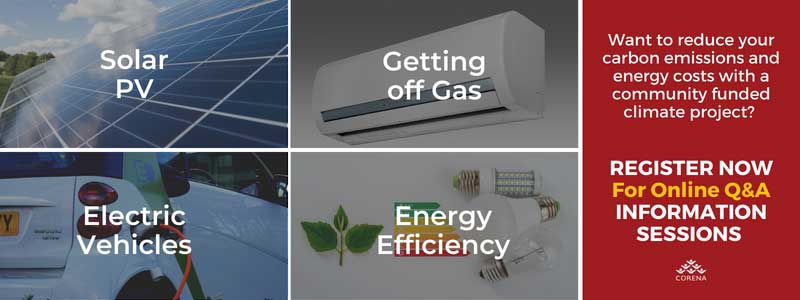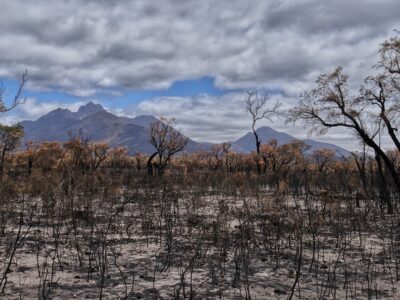Climate resilience is something individuals, organisations, and societies alike all need to consider in anticipation of current and expected future extreme weather events as well as projected sea level rises that will accompany climate change.
In part resilience involves disaster response, by having systems and processes in place to deal with increasing numbers and severity of bushfires, floods, storms and heat waves. It can also include longer term initiatives to increase resilience such as moving critical infrastructure away from areas affected by sea level rise or reducing irrigation water use to respond to decreasing availability of water supplies.
Community organisations and not for profits are often at the forefront of responding to climate change and particularly disasters. For example, charities may be directly providing emergency relief and supporting ongoing rebuilding efforts. Community centres are building the community that is so essential in times of need and can act as communication hubs or evacuation centres. Aged care and disability services need to ensure the safety of their residents in heat waves.
Let’s take a closer look at how organisations can manage their energy use (reducing carbon emissions and energy costs) while at the same time implementing infrastructure that will make them more resilient in disasters and extreme weather events.
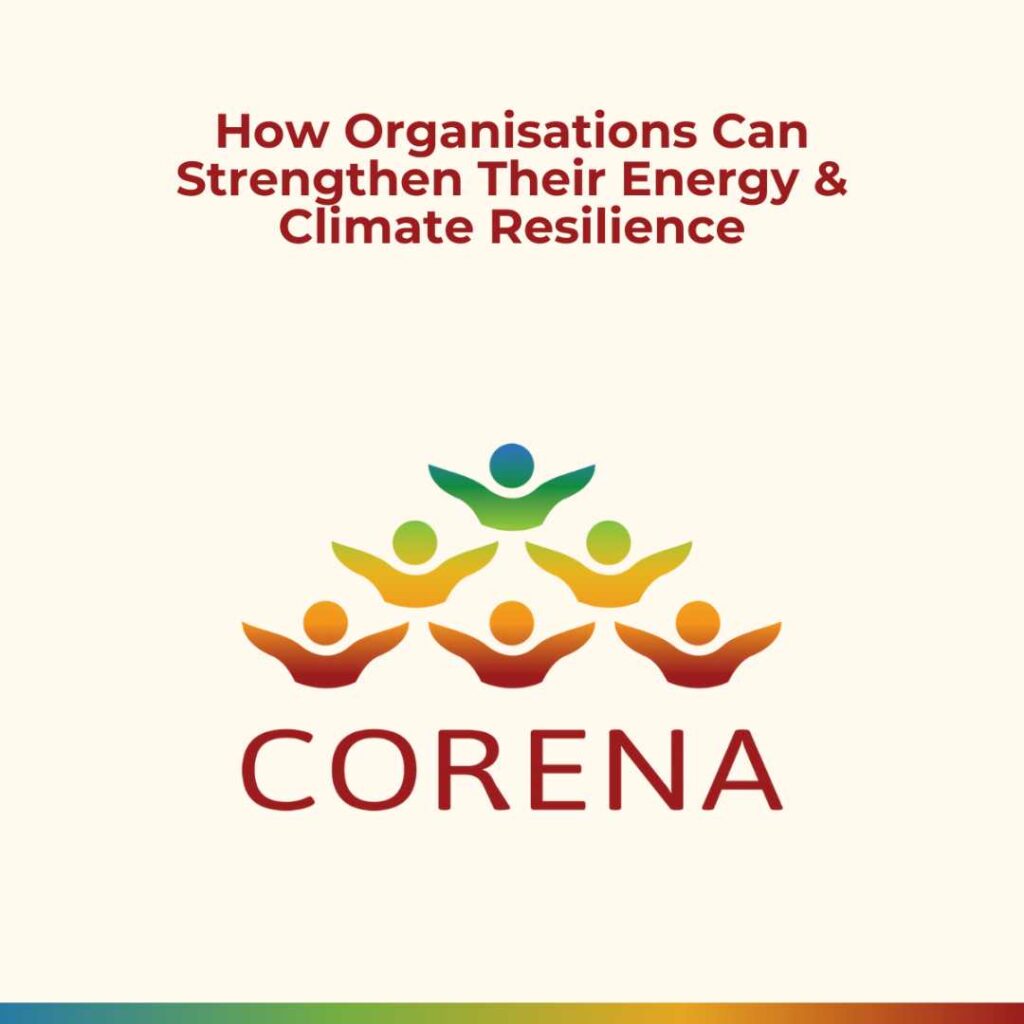
Strategies For Climate Resilience
1. Assess & Plan
The first step to becoming more climate-resilient is to make a thorough and unbiased assessment of the climate-related risks that your organisation might face.
The Community Power Agency, the UTS Institute for Sustainable Futures (ISF) and Parallel Lines have developed an excellent Energy Ready Toolkit for communities to prepare for natural disasters. Drawing on lived experience from recent disaster affected communities it provides a simple facilitated process and resources to examine the risks they face, identify shared priorities and develop a plan of action that’s tailored to a community’s unique needs and values. While aimed at an entire community, not for profits would also find it useful in assessing the risks they face, or may like to use it to lead the discussion in their local community, particularly in rural areas.
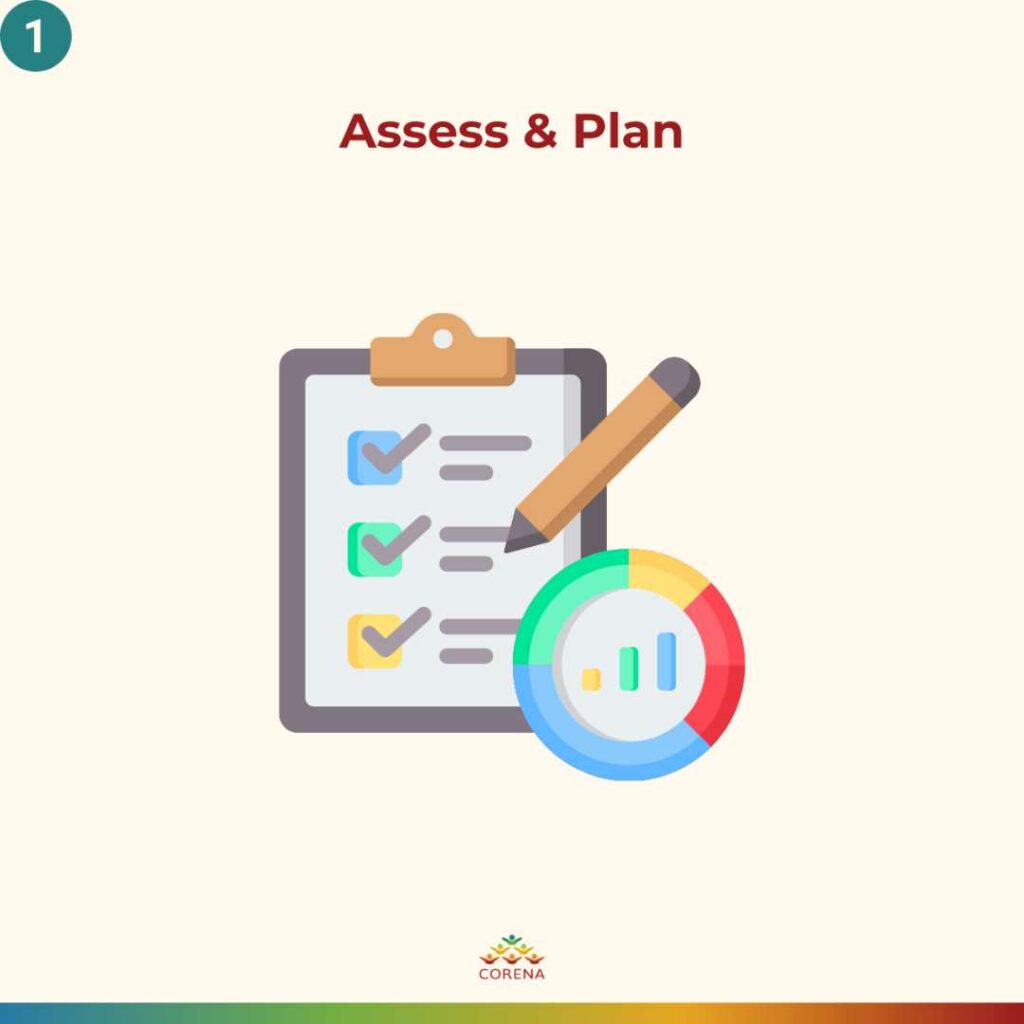
2. Adapt Infrastructure & Equipment
To be more climate-resilient, you need to ensure that your infrastructure and equipment are geared towards that purpose. This is usually quite specific to your organisation and the people you serve. However if you are addressing your energy management more generally, there are tweaks you can make to your projects to give you resilience benefits as well.
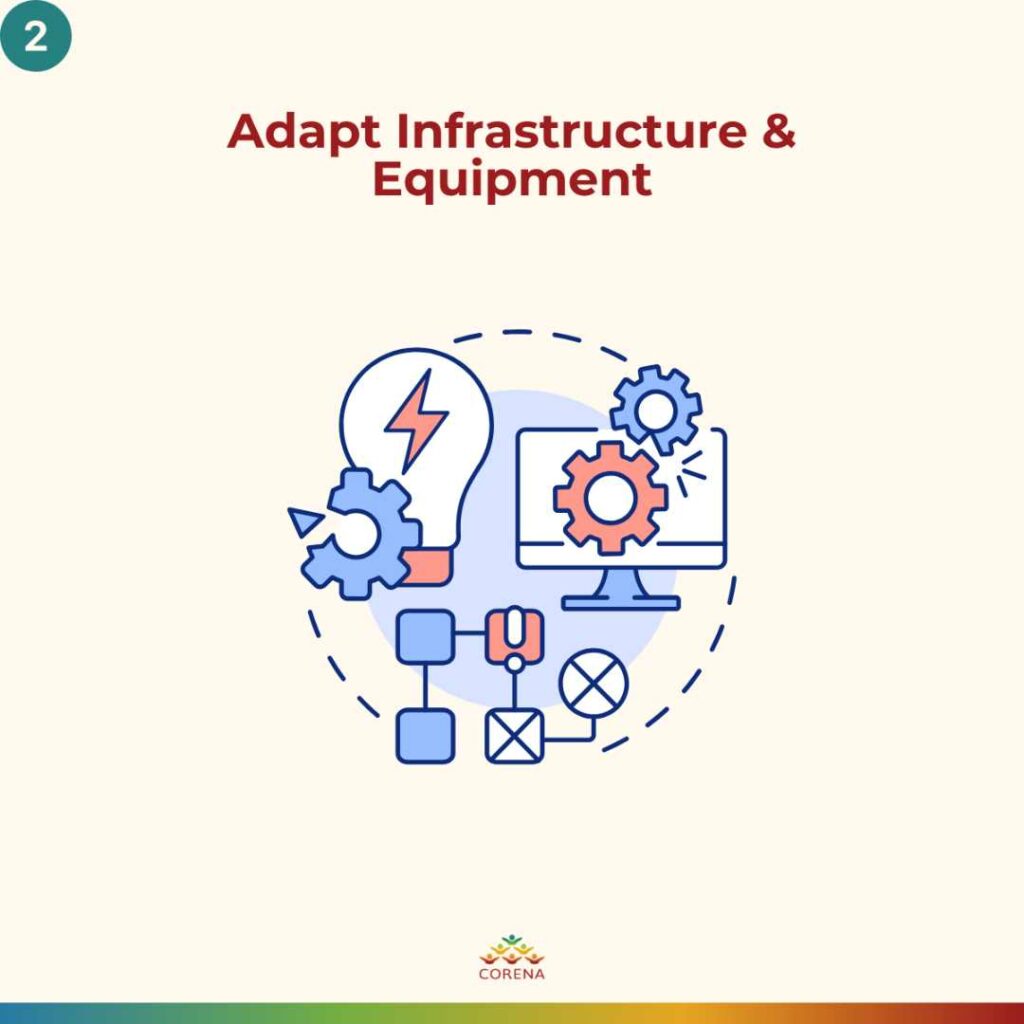
3. Climate Resilient Building
Increasing heatwaves are one of the most dangerous impacts of climate change. The Climate Council’s report “The silent killer: Climate change and the health impacts of extreme heat” states that;
“Heatwaves are a silent killer, major heatwaves have caused more deaths in Australia since 1890 than bushfires, cyclones, earthquakes, floods and severe storms combined…. Extreme heat increases the risk of heat illness and can also exacerbate pre-existing illnesses such as heart and kidney conditions.”
Children, the elderly and the disabled are among those most at risk, which are also often the populations served by community service organisations. People living in poverty will also most likely avoid turning on their air conditioner (if they have one) in heat waves due and are disproportionately affected by increasing energy costs.
This means we need better designed buildings that are more resilient to heat waves. Community Housing Providers in particular need to build housing that goes beyond the mandated 7 star minimum. All housing should have solar panels and efficient heat pump air conditioners to allow all tenants the ability to run their air conditioners in heat wave conditions. Energy monitoring such as that employed in Project 50. Believe Housing/Anglicare SA also helps tenants take control of their energy use. Project 48. Lockington Community Care Committee are another example of an organisation that recognised the need to keep their tenants safe in summer.
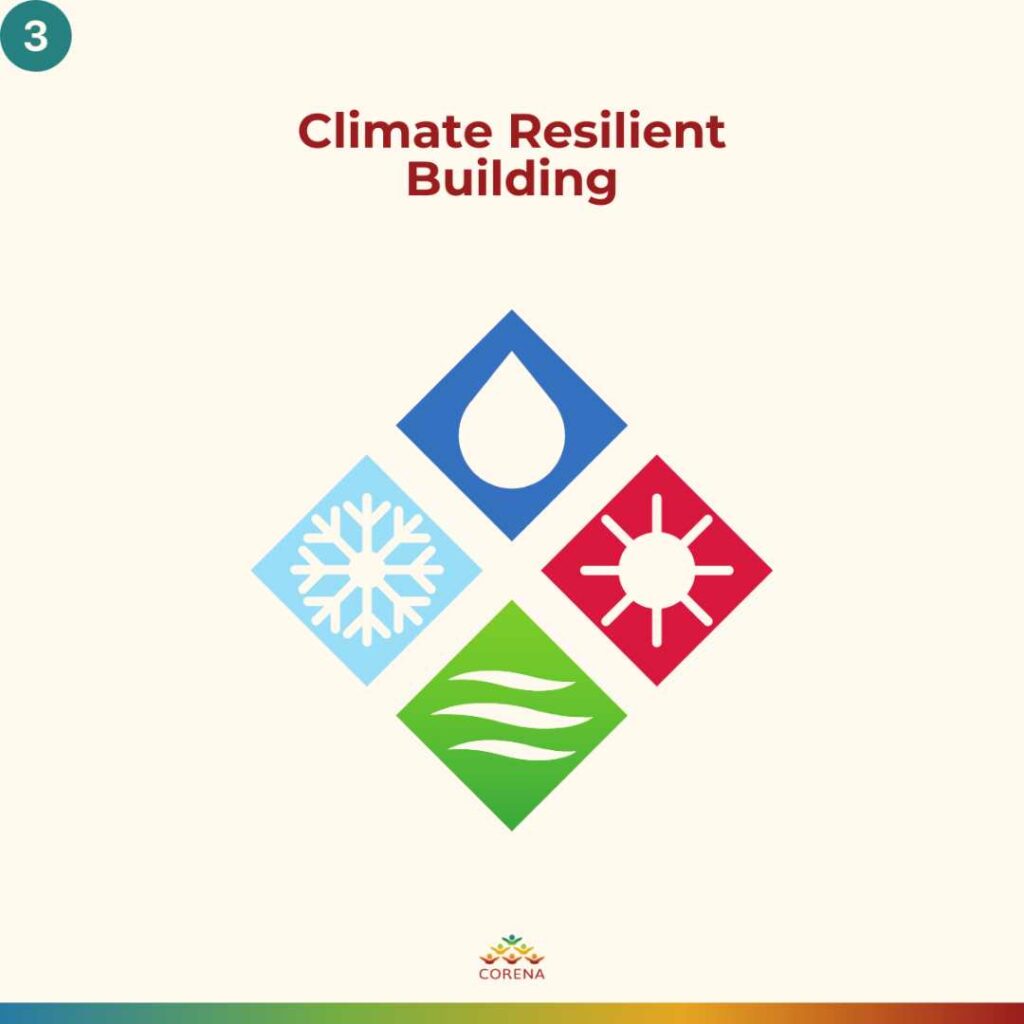
4. Islandable Solar/Battery Systems
Having access to power in an emergency is an enormous benefit in, and after, a disaster. It allows people to charge their phones, run refrigeration, retain internet access (in some cases) and keep payment systems online so people can purchase goods and services without cash.
Islandable means that your solar and battery system is able to work in a power outage. Many people don’t realise that not all solar and battery systems work in a blackout. If you are purchasing solar panels and battery system it is important to specify what you need the system to do in a blackout and ensure your installer is able to deliver this.
Learn more in How To Find A Certified Solar Panels Installer & Get A Good Quote
In their guide “Solar Batteries: Everything you need to know before buying” Solarquotes have listed the following capabilities when considering a system that can operate in a blackout.
- “Backup Current: Measures how many gadgets and appliances you can keep running simultaneously.
- Surge Current: Check if the battery can handle the initial power spike when you start up an appliance.
- Switchover Time: The momentary blackout you’ll experience when switching from grid to battery—this can range from milliseconds to a few minutes.
- Solar Charging Without the Grid: Some systems cut off your solar charging capabilities when the grid’s down—watch out for this. (this is particularly important in an emergency situation when you may be without power for many days)
- Failsafe Design: If the battery’s inverter goes kaput, will it mess with your regular grid supply?” Source – SolarQuotes
It is also very expensive to purchase a battery that will power an entire building in a blackout. You will need to choose what you need backed up in an emergency. This might be a fridge, lights and power points to charge phones, computers and an internet router.
For community centres who are acting as evacuation centres or communication hubs in a disaster an islandable solar and battery system that is able to recharge itself with its solar would be an incredibly valuable resource allowing people to maintain connection with the outside world.
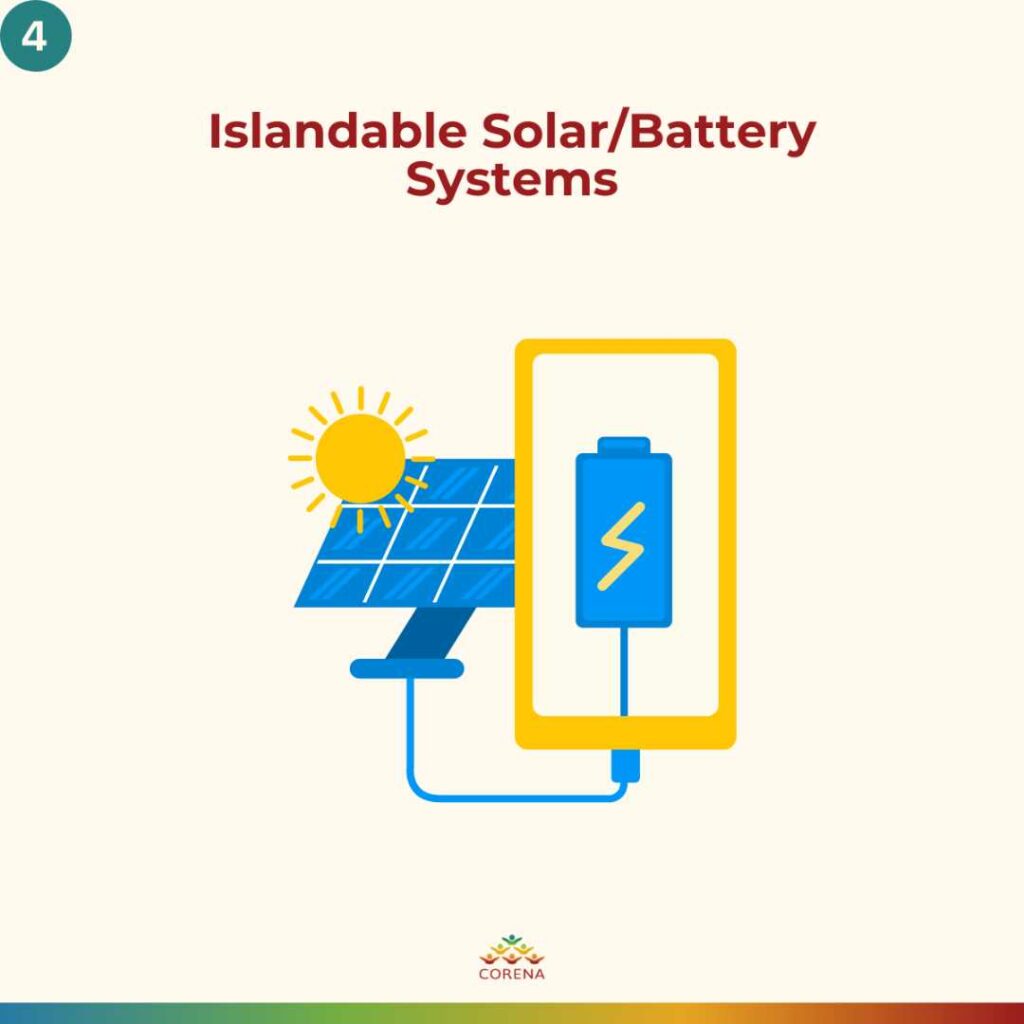
Learn more in Solar Batteries: Why, When & How To Use Them
5. Electric Vehicles As Emergency Power Supplies
Electric vehicles can be very useful in emergency situations. This is because many new EVs have Vehicle to Load (V2L) capability which means you can plug standard appliances into an adapter connected to the charging port of the car. Electric vehicle batteries are big! 3-4 times larger than a domestic house battery, so you can run basic appliances off them for several days.
If you are thinking about switching to electric vehicles for your fleet, the fact they can be a large, flexible and very portable emergency power supply is a great bonus that increases your power supply options in an emergency.
Here is a great article from Drive about which cars offer vehicle-to-load functionality Australia.
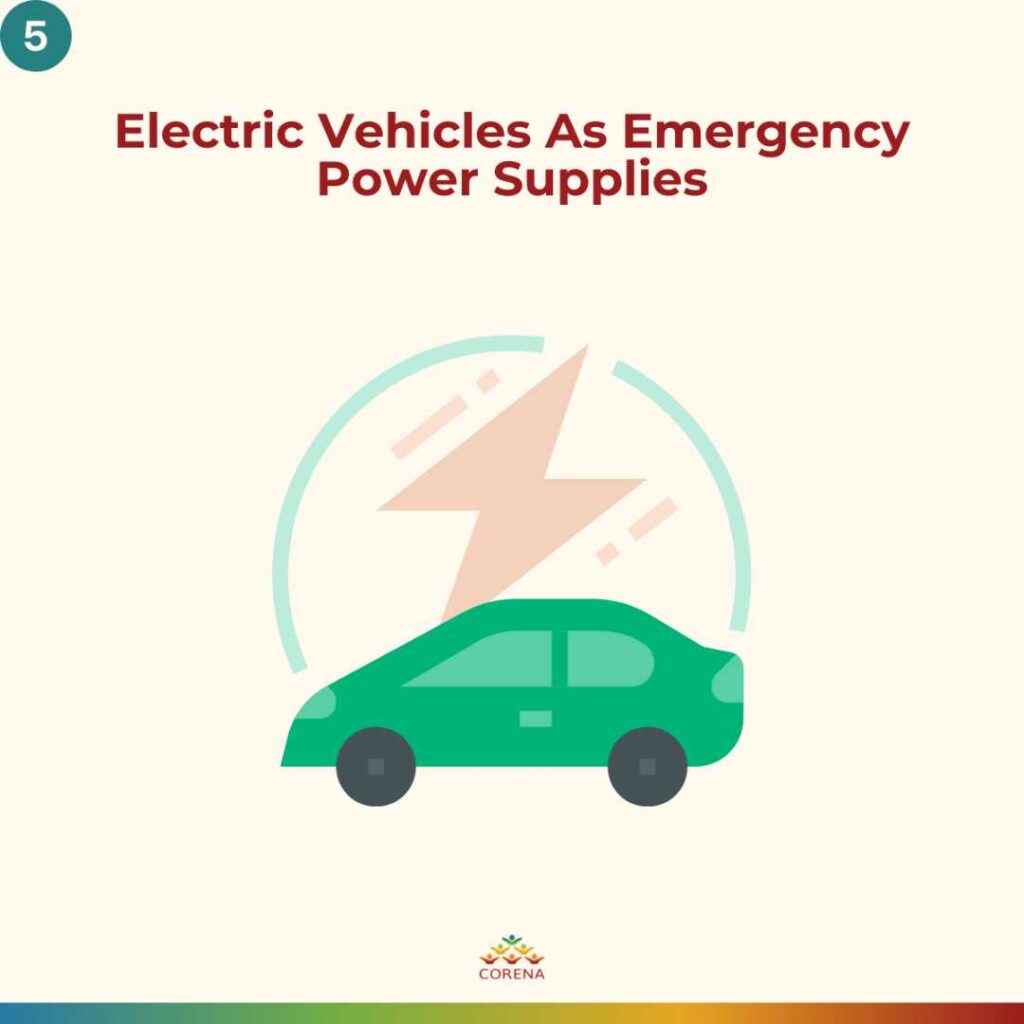
Learn more in 11 Electric Vehicle Benefits You Might Not Know About
6. Energy Efficiency
The more energy efficient your building, the longer your backup power systems will be able to last in a black out. For example if you have efficient lighting you may be able to run more of it for longer with a battery in a blackout situation. So reducing your energy use now not only saves you carbon emissions and costs but makes you more resilient too!
Learn more in Energy Efficiency Audit Guide For Non Profits
Interest Free Climate Project Loans For Non Profits, Community Organisations, Charities, & Social Enterprises
Reducing your organisation’s vulnerability to climate-related risks is necessary, but not everyone can afford the upfront cost on their own. CORENA works with a wide range of non profits, providing technical advice and interest free loans to fund renewable energy, energy efficiency and other initiatives in order to help reduce your organisation’s carbon footprint and create a net zero action plan.
Here at CORENA we receive, record, and transparently report donations from the community. We use that money to give interest-free loans to fund projects that benefit the planet including:
- Energy efficiency
- Getting off gas – Replacement of fossil gas appliances with electric alternatives
- Solar panels
- Electric vehicles
- A combination of the above
Learn more in 5 Ways CORENA Helps Non Profits Reduce Carbon Emissions & Energy Costs
You don’t pay any interest on your CORENA loan, and the quarterly loan repayments are set to be a little less than the savings on your operating costs averaged over a year.
This means you are never out of pocket and after your loan is fully repaid you reap the full financial benefit of having lower operating costs.
To learn more, check out how to apply for a loan, or register for one of our upcoming Online Q&A Information Sessions.
